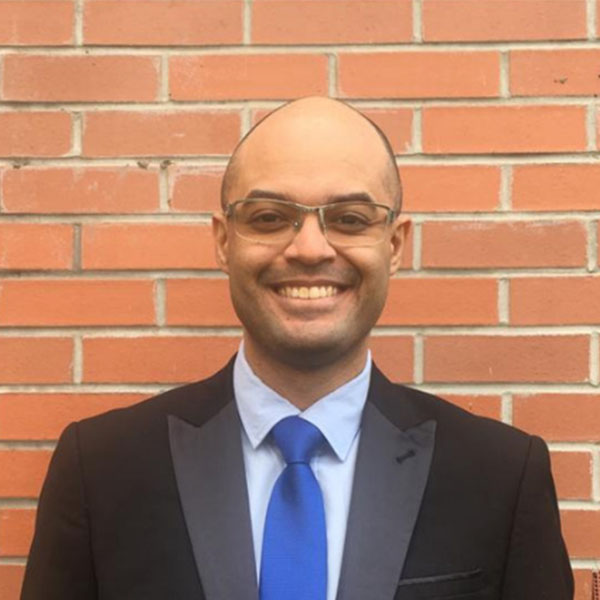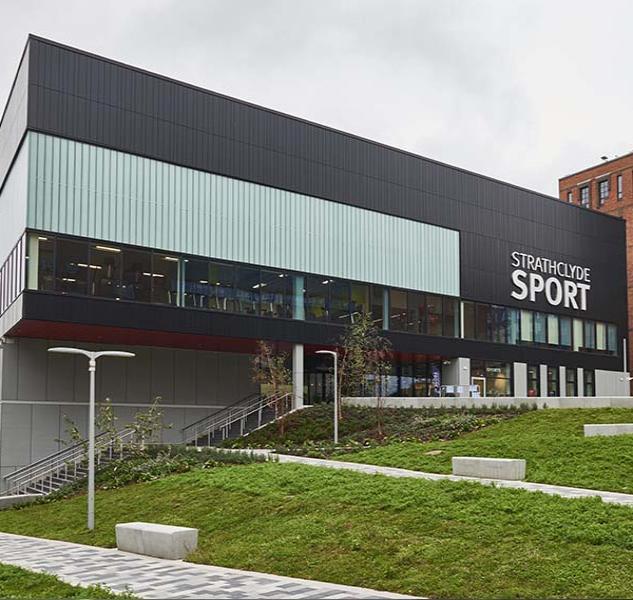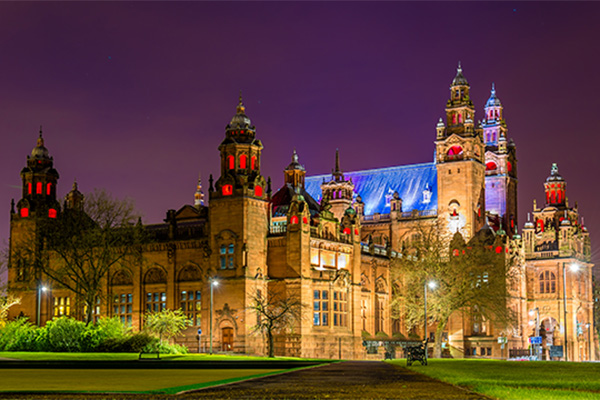
Marketing (PhD)William Jeferson Vieira de Souza
Why did you choose Strathclyde for your postgraduate research study?
I can highlight three main reasons. First, I felt a sense of trust during the first contact with my supervisors. Professor Beverly Wagner and Dr Natalie McDougall conducted the interview with kindness and with challenging questions. In this way, I felt that working with them was an excellent opportunity to evolve as a researcher. Second, I was amazed by the fact that the University of Strathclyde is home to students from more than 100 countries. I felt happy with the opportunity of being part of an academic environment full of cultural diversity. Lastly, I saw news describing Glasgow as a marvellous city with kind people and nice parks. I needed to enjoy the opportunity of living in this amazing city.


What's the best thing about Strathclyde?
The best thing in the university is the Strathclyde team. The librarians are always available to clarify questions, the IT team provides good solutions when needed, the Strathclyde Sport team offers excellent facilities to train, and the Strathclyde union representatives provide good support to find accommodation in Glasgow. Here I would like to share a special thanks for Christina MacLean, the administrator from the Department of Marketing. She has been supporting my wife and I since the moment that we required information to prepare our documents to move to Glasgow.
What are the Strathclyde facilities like?
Regarding the Strathclyde facilities, I would like to highlight the two places that I like the most. First, the Strathclyde Sport facilities offer a proper environment to work out. During the last months, I have been engaging in training sessions and I can affirm that the Strathclyde Sport fitness suite is an exceptional space to relax, take care of my physical health, and restore my energies to keep working in my PhD research. Second, the library’s facilities are well-structured to store an extensive collection of books that can be consulted by the students. Moreover, Andersonian Library owns stations that provide students with adequate space for the development of academic activities.
Tell us about the nature of your research?
My research explores the relationships established between manufacturers and external supply chain partners, such as suppliers and customers, to deploy circularity strategies. Circularity means the continuous reapplication of material resources to attend to consuming needs. In this way, material resources once extracted from nature are maintained in circulation to enable the activities of production and consumption.
What do you like about your research area?
I enjoy working in this research area for two reasons. First, I feel challenged to understand how different supply chain players join forces to deploy circularity strategies. Second, circularity strategies have the potential to support supply chain players to decrease or eliminate the ratio of virgin or non-renewable materials used directly as inputs to manufacture a product. This is important to foster the prevention or a significant reduction in the occurrence of environmental impacts linked to material resource use.
What’s the Strathclyde research community like?
The research community at Strathclyde is full of diversity. It has been a great time to learn new aspects of different cultures and expand my comprehension of the world. Secondly, the University fosters an academic environment of mutual support between PhD students. For example, on the PGR Peer Support Program, I enjoy exchanging support with my peers in terms of knowledge, advice and practical help. Lastly, here you can listen to lectures focused on interesting research topics. For example, customer interaction mediated by digital technologies, consumer vulnerability, and climate change solutions.
Tell us about the support from your supervisor?
I would like to thank my supervisors Professor Beverly Wagner and Dr Natalie McDougall for their support during my PhD journey. Since the first contact, they have been challenging me with complex questions to prepare me for the university reviews and my viva. Being constantly challenged helps me to improve my research skills as an independent researcher. Our supervisory meetings have been fruitful moments. During our conversations, they share critical analysis, comments and suggestions that represent key contributions to the development of my research. Lastly, I would like to thank them for sharing supportive words in the hard moments.
What is it like being a student in Glasgow?
I have four reasons to say that living in Glasgow is a special experience that I enjoy every single day. First, Glasgowegians are kind people. Since our first contact with locals at Glasgow Airport, my wife and I have felt welcome in the city.
Second, Glasgow has around 90 amazing parks to go for a walk, relax, and recover my energies to go back to PhD work.
Third, visiting Glasgow museums has been an opportunity to be amazed by interesting and diverse exhibitions. For example, in the Glasgow Police Museum, you can see a collection of insignias, headgears and uniforms from police forces from around the world. You can also visit Kelvingrove Museum and be surprised by an exhibition about dinosaurs.
Last, I need to mention that Christmas in Glasgow is marvellous. To illustrate, it was lovely to see the Christmas lights in George Square. It was also delightful to engage in the Christmas tree lights switch-on in the West End.

What advice would you give to prospective postgraduate research students?
To be honoured with a PhD position in this prestigious university is not an easy task. But with hard work, you can succeed. In my journey, I invested a lot of time to prepare a great application to conquer the trust of my supervisors and to get support from people and institutions that help Brazilians to study abroad.
If you are interested in the challenge of doing academic research that makes a difference in the world the University of Strathclyde is the right place.